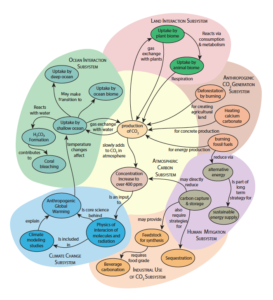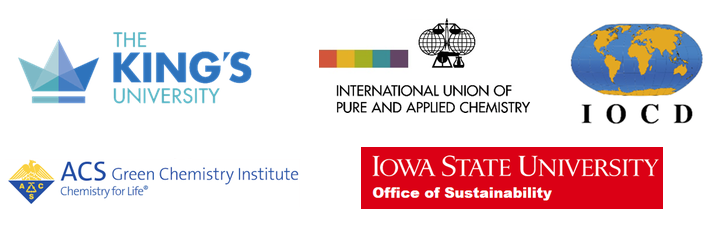Systems Thinking for Education about the Molecular Basis of Sustainability Featured in Nature Sustainability

Amid recent attention to scientific reports of record-setting atmospheric CO2 levels and the threatened extinction of one million species, the work of a global chemistry education task force offers a way to help equip present and future students to tackle such urgent global challenges.
As outlined in Systems Thinking for Education about the Molecular Basis of Sustainability, published this week in Nature Sustainability, the task force is seeking to re-orient chemistry education through systems thinking, so as to better address emerging global challenges such as climate change, ocean acidification, and the UN Sustainable Development Goals.
“Understanding the flow of chemical substances and energy is essential to achieving sustainability agendas such as the UN Sustainable Development Goals and the Planetary Boundaries Framework,” says Dr. Peter Mahaffy of the King’s University, the paper’s lead author. “Since the primary activities of chemistry are to synthesize, transform, and analyze those substances, chemistry education has an important role to play in guiding human development on a rapidly changing planet. Yet most chemistry educators don’t routinely connect the details of the chemical reactions and concepts they teach to earth and societal systems. In this paper we unpack the ‘molecular basis of sustainability’ and suggest ways in which systems thinking can help to reorient chemistry education to better contribute to a sustainable future.”
Co-authors with Mahaffy, who is chemistry professor and director of the King’s Centre for Visualization in Science, are Stephen Matlin from the International Organization for Chemical Sciences in Development (IOCD); Tom Holme from Iowa State University and the incoming editor of the Journal of Chemical Education; and Jenny MacKellar, program manager at the American Chemical Society Green Chemistry Institute. The author team forms the Earth & Societal Systems subgroup of an International Union of Pure and Applied Chemistry (IUPAC) task force on Systems Thinking in Chemistry Education. IOCD provided additional support for the project.
Link to the Nature Sustainability paper (released 13 May 2019)
Link to the Nature Sustainability Community “behind the paper” blog
Link to the IUPAC project page and task force
For further information, contact:
Peter Mahaffy, [email protected]
780-465-3500 x 8043, (@petermahaffy)

